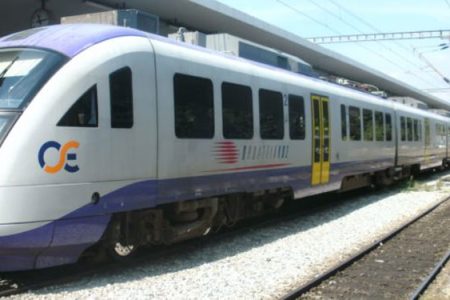Near miss on Athens railway exposes critical safety failings: Union blames malfunctioning systems

“We await statements from OSE, Hellenic Train, and the responsible minister,” the union added, stressing that the remote control systems, ETCS, and signal lights were not operational at the location of the near miss.
OSE confirms near-collision, launches inquiry
Following the incident, the Hellenic Railways Organization (OSE) released a statement confirming the details of the event. According to OSE, at approximately 09:13, train 1210 was given clearance to depart from Athens Station towards Agios Anargyros. However, shortly after departure, train 1307, which was travelling from Kiato towards Athens, was also authorised to enter the same track.
Upon realising the conflicting instructions, the Athens Station Master contacted the control centre (SKA) to cancel train 1307’s movement towards Athens. At the same time, the driver of train 1210 used the VHF communication system to inform the driver of train 1307, who immediately stopped the train about 500 metres before entering the single track.
OSE announced several actions in response to the incident:
- An official investigation has been launched to determine the exact circumstances.
- The SKA station master who authorised the conflicting order for train 1307 has been suspended and referred for disciplinary action.
- Audio recordings from GSM-R and VHF communications are being reviewed.
- Greece’s railway safety authorities (RAS) and the Special Unit for Accident and Incident Investigation (EODASAAM) have been informed.
The OSE reiterated the importance of strict adherence to the General Traffic Regulation, which includes multiple safety mechanisms intended to prevent such incidents. The organisation also pledged to increase training for its staff to avoid future errors, stressing that passenger safety remains the top priority.
However, for the union and many rail workers, the near-collision serves as another reminder of the pressing need for modernisation and investment in Greece’s railway system. Despite repeated warnings and tragic accidents in recent years, critical infrastructure—such as remote control systems and signalling—remains unreliable. The workers, and indeed passengers, are left wondering how long these systemic issues will continue before real change is implemented.
______________________________________________
Are you seeking news from Greece presented from a progressive, non-mainstream perspective? Subscribe monthly or annually to support TPP International in delivering independent reporting in English. Don’t let Greek progressive voices fade.
Make sure to reference “TPP International” and your order number as the reason for payment.